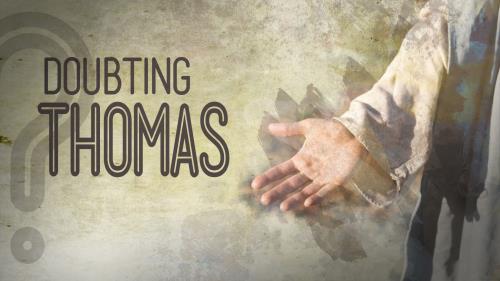-
Hearing The Voice Of God
Contributed by Jm Raja Lawrence on Sep 22, 2025 (message contributor)
Summary: Through Elijah's obedience and a widow's desperation, we discover how spiritual static blocks God's voice while positioning ourselves correctly opens heaven's communication channel in our daily lives.
Hearing the Voice of God
Hebrews 1:1-2; 1 Kings 17:8-15
Introduction
Have you ever stood in a crowded room where everyone's talking at once? You know someone's calling your name, but you can't quite make out their voice through all the noise. That's what life feels like sometimes, doesn't it? We're surrounded by voices – social media, news, friends, our own worries and somewhere in that chaos, we're told God is speaking. But how do we actually hear Him?
Here's something that might surprise you: God has never stopped talking. The writer of Hebrews tells us, "Long ago God spoke many times and in many ways to our ancestors through the prophets. And now in these final days, he has spoken to us through his Son" (Hebrews 1:1-2 NLT). The question isn't whether God is speaking. The question is whether we're positioned to hear.
Today, we're going to look at two people who faced the same crisis – a terrible drought and famine. One heard God's voice clearly. The other almost missed it completely. Their stories from 1 Kings 17 teach us something crucial about what it takes to hear from heaven.
1. God's Voice Then and Now: From Prophets to the Son
In the old days, if you wanted to hear from God, you went to a prophet. Think about it:
? Moses on the mountain,
? Samuel in the temple,
? Isaiah in the throne room.
God picked specific people to be His messengers. It was like having one phone line for an entire town. You had to go to that one place to get the message.
But Hebrews 1:1-2 tells us something changed. God didn't just send another prophet. He sent His Son. Jesus didn't just bring a message from God, He was the message. As John 1:14 puts it, "The Word became flesh and made his dwelling among us."
Now, through the Holy Spirit, we have direct access. Jesus promised in John 10:27, "My sheep listen to my voice; I know them, and they follow me." You don't need to find a prophet anymore. You don't need someone else to be your go-between. But here's the thing – having access doesn't mean we're automatically tuned in.
Think about your phone. You have access to anyone in the world you could call. But if your phone's on silent, or if you're in a dead zone, or if you simply don't pick up, that access doesn't help much, does it?
2. Elijah: A Man Who Stayed Connected
When we meet Elijah in 1 Kings 17, Israel is in trouble. King Ahab and Queen Jezebel have led the nation into idol worship. So Elijah shows up and announces there won't be any rain until he says so. That's a bold move. But then something interesting happens.
God tells Elijah, "Go hide by the Kerith Brook, and I'll send ravens to feed you" (1 Kings 17:3-4, paraphrased).
Ravens. Not eagles or doves: ravens, the scavenger birds that eat dead things. And Elijah just goes. No questions, no complaints. The ravens bring him bread and meat twice a day.
Then the brook dries up. Now, if I were Elijah, I might panic a little. But verse 8 simply says, "Then the word of the Lord came to him." God had the next step ready: "Go to Zarephath. I've instructed a widow there to feed you."
Zarephath means “refining place”. Zarephath wasn’t in Israel, but in the hometown of Jezebel, the center of Baal worship.
Notice something about Elijah? He wasn't just hearing God in the big moments, the dramatic confrontation with Ahab or later at Mount Carmel. He heard God in the daily stuff. Where to go, where to stay, what to do next. James 5:17 reminds us, "Elijah was a human being, even as we are." He wasn't superhuman. He just stayed tuned in.
How did he do it? Look at his life pattern. In 1 Kings 18:42, after the Mount Carmel showdown, we find him with his face between his knees, praying. In 1 Kings 19:11-12, God speaks to him in a gentle whisper. Elijah knew that hearing God's voice required getting quiet enough to listen.
3. The Widow: When Static Blocks the Signal
Now, the widow at Zarephath: she's a different story. When Elijah finds her, she's gathering sticks to make one last meal before she and her son starve to death. Elijah asks for water and bread, and her response reveals why she couldn't hear God's voice directly.
First, look at how she addresses God (1 Kings 17:12): "As surely as the LORD your God lives..." Did you catch that? "Your God," not "my God." She knew about God, but He wasn't her Lord.
It's like trying to tune into a radio station when you're not on the right frequency. You might catch bits and pieces, but you won't get the clear message. Psalm 66:18 warns, "If I had cherished sin in my heart, the Lord would not have listened." How can we expect to hear from Someone we won't acknowledge as Lord?

 Sermon Central
Sermon Central



